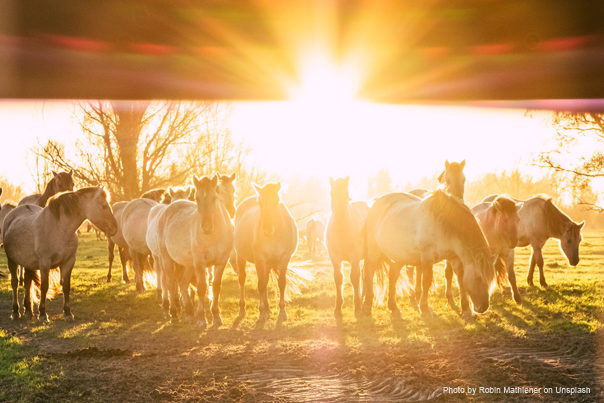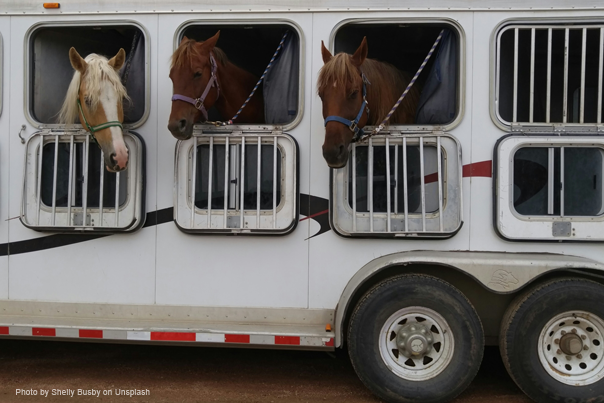
University of California, Davis, Veterinary Medical Teaching Hospital staff members John Madigan, DVM, Dipl. ACVIM, ACAW; Gary Magdesian, DVM, Dipl. ACVIM, ACVECC; and W. David Wilson, BVMS, MS, MRCVS, offer important tips to prevent heat-related problems in horses.
- High environmental temperatures and related heat issues, including dehydration, exhaustion, and heat stroke, can occur in horses and can produce illness and death.
- Provide water. Help your horse maintain hydration by always allowing free access to water. Have a water source while traveling. Obtain some clean five-gallon cans and fill them up with water before you travel. Electrolytes might be useful if the horse has been sweating excessively. Have a plan outlined by your veterinarian if you have not used electrolytes before. Only use electrolytes specifically made for horses.
- Provide as much shade as possible.
- Limit what you do with your horse during peak heat: ride in the early mornings when it is cooler; shorten your ride; go slower and provide frequent breaks for your horse, in shade; encourage your horse to drink whenever they want water.
- Ventilation is key. If your horse lives in a barn with limited ventilation, try to arrange more air circulation by carefully placing a fan in front of the stall or in the aisle way.
- Know signs of fatigue and overheating in your horse and stop before more severe signs of heat exhaustion begin.
- Hose (spray) off your horse or pour water from a bucket over your horse. Cool water is fine, normal temperature (not hot) water is good, too. Evaporation produces cooling and continuous hosing is one of the most effective means of lowering body temperature.
Tips for Trailering in the Heat
If you need to trailer your horse:
– do so in the cool early morning or late evening hours when it is cooler;
– don’t leave your horse in a parked trailer, especially if there is no shade. Just as with a parked car, temperatures inside a trailer can rapidly reach 140°F and the horse can quickly develop heat stroke;
– provide as much ventilation and airflow as safely as possible on the road;
– be very careful with hauling foals—they appear to be even more susceptible to heat than adult horses.





